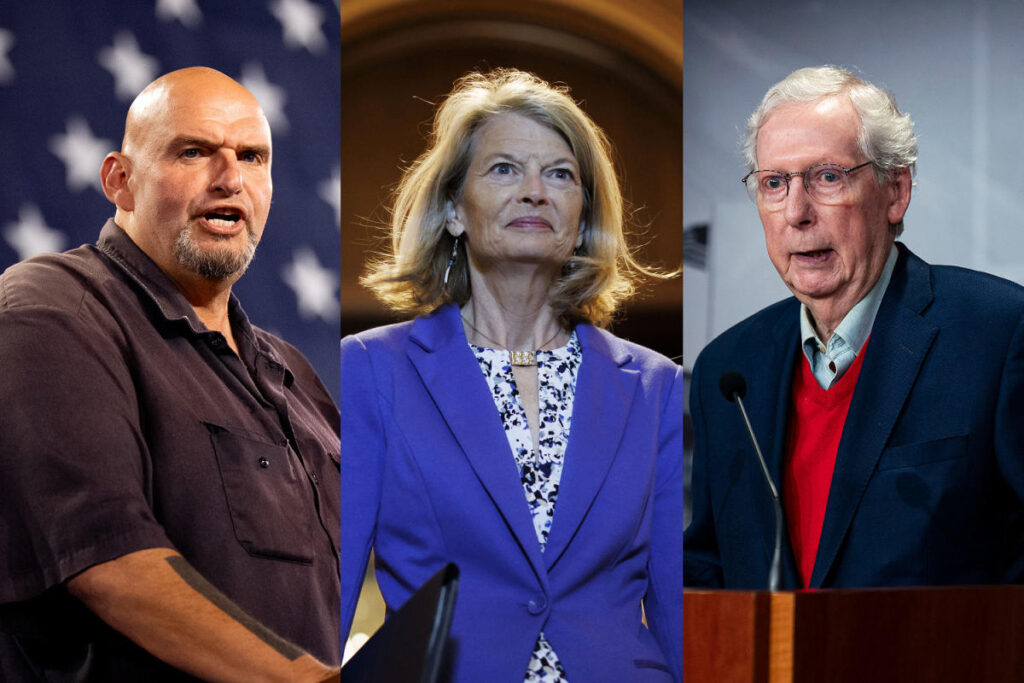As President-elect Donald Trump prepares for his second term, he has indicated a desire to disrupt the status quo through a unique group of nominees for key executive positions. Despite the Republican Party’s control of the Senate, the implications of Trump’s past controversial choices, such as nominating former Rep. Matt Gaetz, have revealed that the Senate may not fully endorse his approach. The looming allegations against Gaetz limited support among Republicans, showcasing a reluctance to back candidates deemed too extreme. With a 53-47 split in the Senate, the dynamics suggest that while Trump can push his agenda, he may need to work closely with a degree of bipartisan support to ensure confirmations.
Among the senators crucial to the upcoming nomination battles is Senator Susan Collins from Maine, a centrist Republican who has a track record of voting against her party on significant issues. As the only GOP senator from a blue state, her votes will be heavily scrutinized, particularly as she chairs the Appropriations Committee, which enables her to negotiate bipartisan funding deals. Collins’ potential opposition to controversial nominees could position her as a key player in defining the Republican Party’s future approach and balancing the demands of her voter base with Trump’s agenda.
Another senator to watch is Lisa Murkowski from Alaska, who has gained a reputation as a moderate willing to challenge Trump’s decisions. Her opposition to Gaetz exemplifies her willingness to dissent against far-right nominations. Murkowski’s re-election cycle might affect her decisions regarding health-related nominees, particularly given her support for pro-choice legislation. With no immediate re-election pressure, she could maintain her stance against extreme appointments while influencing health policies as part of her committee leadership.
Senator John Thune, the incoming majority leader, faces the challenge of aligning the Senate with Trump’s agenda while also adhering to traditional Republican values. Despite not being an ultra-MAGA figure, Thune holds significant influence and his balancing act could dictate Senate norms moving forward. Similarly, former Senate leader Mitch McConnell finds himself in a unique position after stepping back from leadership roles. Having clashed with Trump in the past, McConnell now has the chance to take a more vocal stance against questionable nominations, potentially using his seasoned political acumen to steer the party’s direction amid the MAGA influence.
Other notable senators include Thom Tillis from North Carolina and Bill Cassidy from Louisiana, both of whom face re-election challenges that could affect how they navigate Trump’s nomination process. Tillis’s strategy will likely hinge on appealing to both the Republican base and moderate voters, while Cassidy’s medical background will play into his voting on health-related nominees. John Curtis of Utah, stepping into the shoes of Mitt Romney, is still defining his political stance and may forge a middle ground between Trump support and institutional Republicanism, which will affect future nomination votes.
Democratic senators like John Fetterman and Jon Ossoff are also crucial players in the nomination process. Fetterman, known for his unorthodox style, has demonstrated a willingness to support non-controversial nominees, signaling a potential for cross-party cooperation. Meanwhile, Ossoff will be under pressure to establish his relevance in a state that has become competitive for Democrats following Trump’s recent successes. Both senators will need to navigate their political identities while also contributing to a larger narrative about bipartisan governance, ultimately shaping how the Senate addresses Trump’s agenda and nominations.
In sum, Trump will likely face significant challenges navigating a Republican Senate that may not fully embrace his radical approach, with key figures from both parties standing at critical junctures during the confirmation battles. The outcomes will not only define the Trump administration’s trajectory but could also influence the broader political landscape leading into the 2026 elections, as moderates and more progressive senators alike seek a balance that resonates with their constituents.

